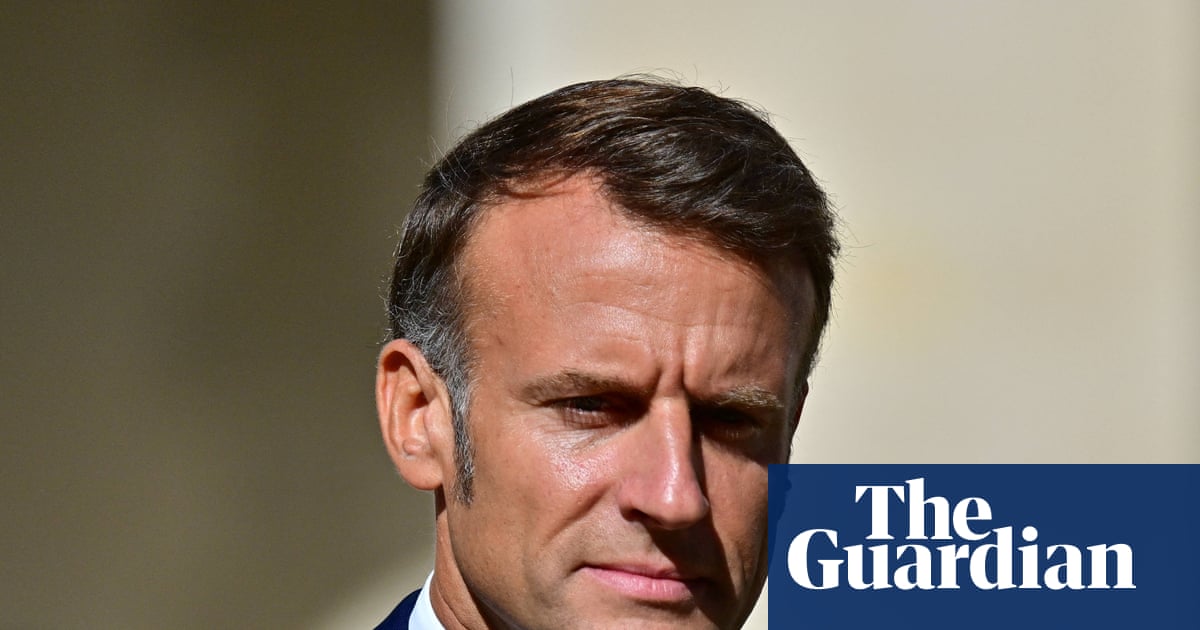As the French president, Emmanuel Macron, faces a crucial moment on the international stage this month, with the recognition of a Palestinian state at the UN assembly and diplomacy over Gaza and Ukraine, he has once again been shaken by a damaging political crisis at home.
The centrist prime minister, François Bayrou, was toppled on Monday night in a parliamentary confidence vote, leaving Macron scrambling to appoint his third prime minister in a year, and the fifth since his second term as president began in 2022.
This summer, Macron said France needed stability at home while playing a key role on the international stage. But that stability is proving elusive.
Since Macron’s gamble of calling a snap election last June, the parliament remains divided between three groups – the left, the centre and the far right – none of which has a majority. This has created deadlock on economic policy and divisions over the most basic political task: setting a budget for 2026.
Bayrou fell because of his unpopular austerity budget to curb public debt. France must now urgently agree a budget for next year. But there is no certainty that any new prime minister chosen by Macron could achieve budget consensus or indeed escape being similarly ousted. Bayrou lasted barely nine months and, before him, the rightwing Michel Barnier was toppled after only three.
Even if Macron were to call another snap election – which is not his favoured choice with Marine Le Pen’s far-right National Rally leading in the polls – parliament could probably remain just as divided and deadlocked, without a clear majority.
Macron, whose presidency runs until 2027, might now chose a prime minister closer to the centre-left. But that would be difficult because the president refuses to budge on his economic agenda, dating from 2017, which has included tax cuts on businesses, scrapping the wealth tax and raising the pension age. All of these the Socialists want to roll back.
Macron might instead again look towards the centre right for a prime minister who could keep on board the rightwing Les Républicains party, which has propped up the minority government so far. But they would face the same budget rows.
Alexandra Roulet, an associate professor of economics at the Insead business school, who advised Macron from 2022 to 2023, said political parties remained deeply divided on the budget and how to deal with France’s growing public debt.
after newsletter promotion
Roulet said: “The Socialists would say we’re in this [debt] situation because Macron cut taxes massively since 2017, which means that to fix that, tax should be increased, particularly on the rich. Macron’s centrists would say, we cut taxes but France has become more business-friendly … and we’re in this situation because of public spending going out of control, an ageing population and pension issues. The far right would say we’re in this situation because too much money is being spent on immigration.”
She said: “What’s worrying is that we are in a trajectory where every year the debt is projected to increase. You would want it to be stabilised. For that you’d need a budget that both decreases spending and probably increases taxes a bit, taking some money from everywhere: a consolidation budget. But it seems to be very difficult politically for there to be any consensus on a consolidation budget. I think things are going to be unstable until the end of this presidential term.”
